The ancient farmland which may disappear under 700 homes
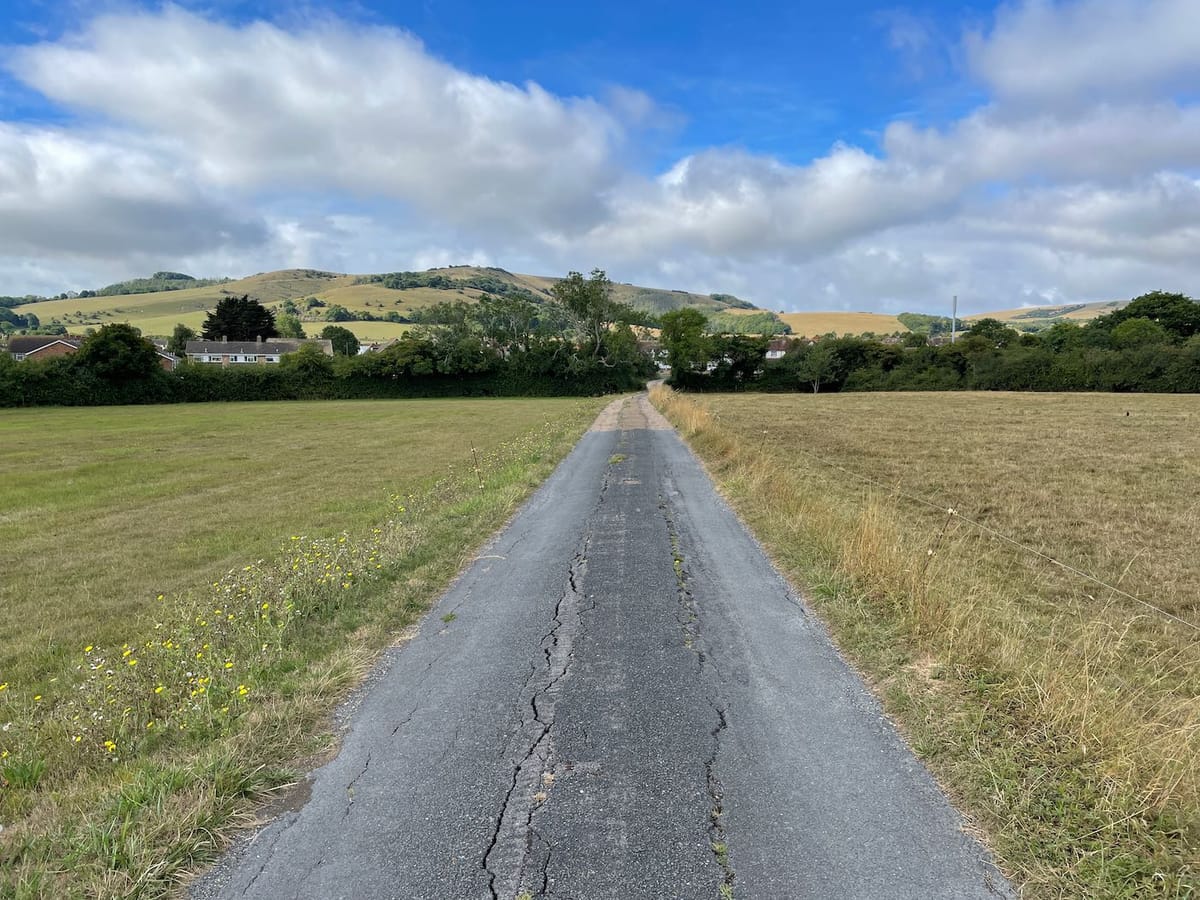
John Pritchett pauses beneath the avenue of centuries-old oaks at Mornings Mill Farm with panoramic views of the South Downs towards Butts Brow.
He looks up into the tree canopy and thinks back to when he worked the farm in Lower Willingdon.
“I used to walk down this path after work in summer and there were bats everywhere in the trees. There are primroses and wildflowers all along here in the spring,” he says.
John, 79, is the chairman of Willingdon and Jevington Parish Council. He was awarded the British Empire Medal in 2016 for his many years of service to the community – 36 years on the parish council.
He worked on the farm for 28 years until 1987. He recalls that eight families worked the farm in the 1960s – there is now a tenant farmer.
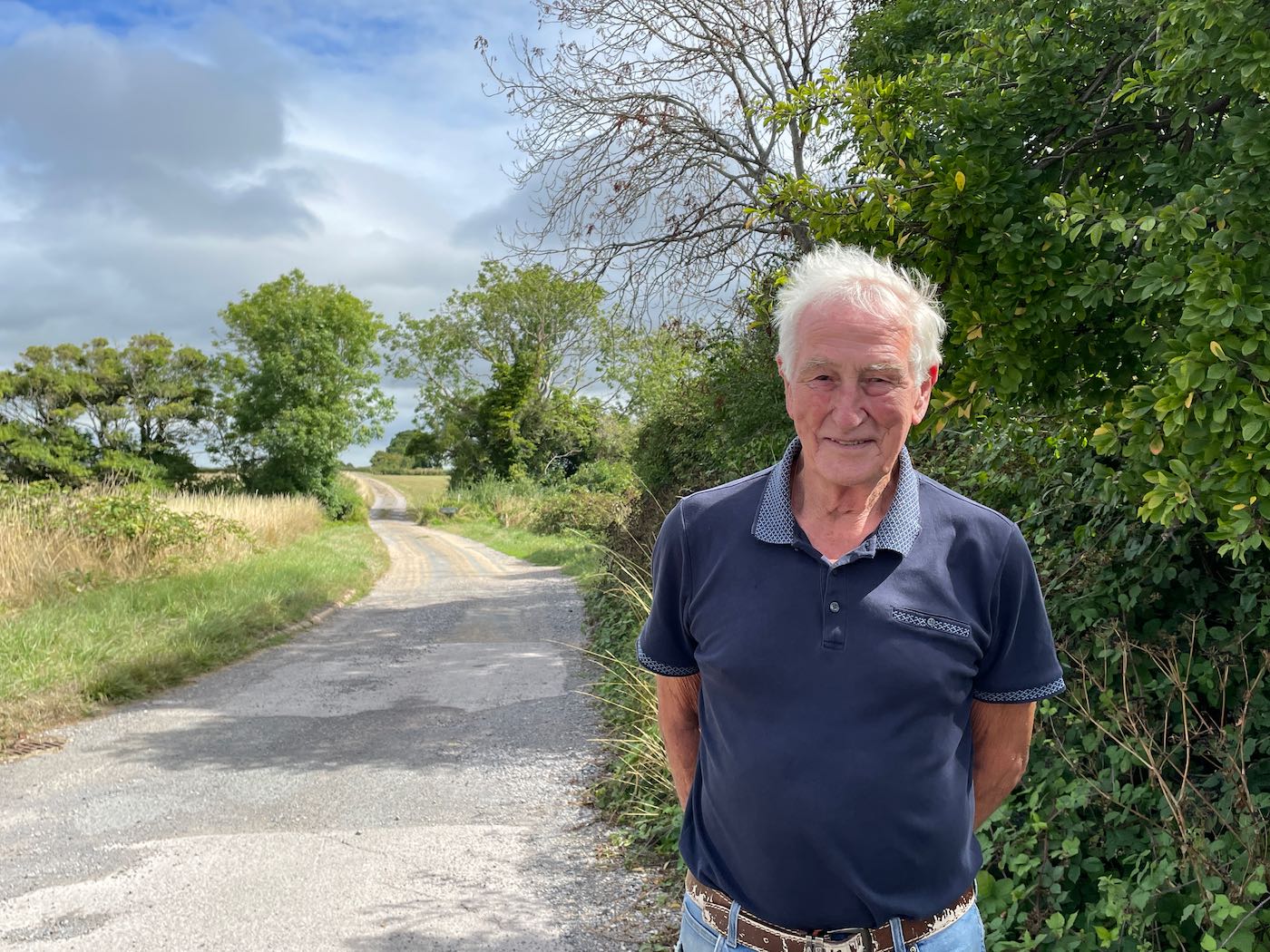
John, who is tall, lean and still fit, knows every inch of the land. “I built that shed and put a new floor in that barn,” he says, pointing at various farm buildings scattered around.
It is a peaceful scene with cattle grazing in the field, hedgerows dividing large fields and a shady public footpath cutting under the oak trees.
But there is an application to Wealden District Council to build 700 homes, a medical centre, school and community centre on the farmland of about 130 acres (53 hectares).
It is a highly controversial scheme which has attracted more than 1,000 objections.
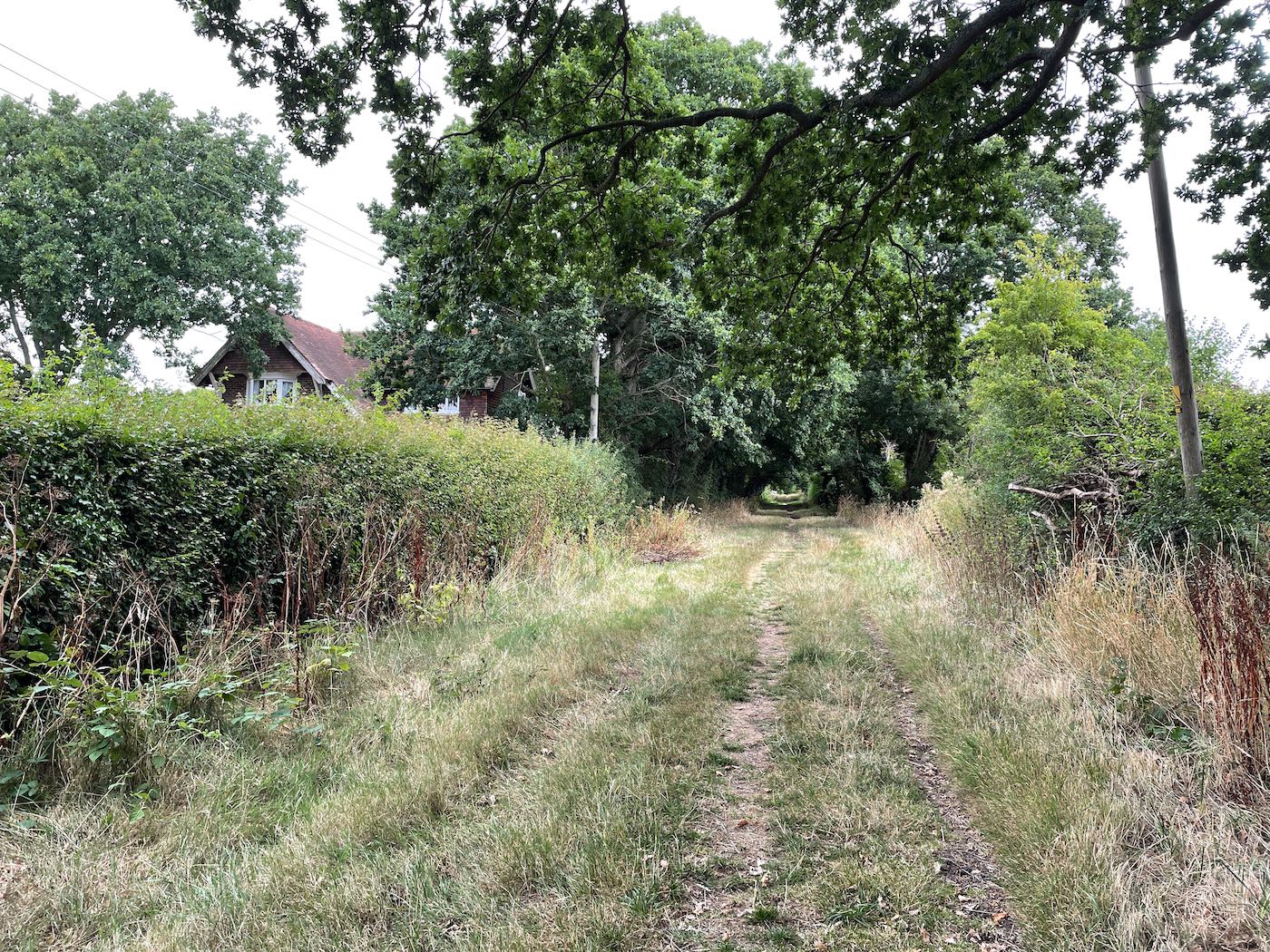
Eastbourne MP Caroline Ansell has also weighed in, saying that increased traffic from the development would be “an intolerable burden” and the loss of such a green space would have a damaging effect on the community.
A 112-page report commissioned by Wealden District Council on open spaces, published in April 2022, found that nearby Polegate has one park comprising nearly eight acres, which is the equivalent of 0.85 acres per 1,000 people.
It noted that Willingdon and Jevington had no park or garden.
The land is next to the busy A2270 Eastbourne Road, the main north-south road into the western side of Eastbourne, taking traffic from the A27 roundabout near Polegate directly into town.
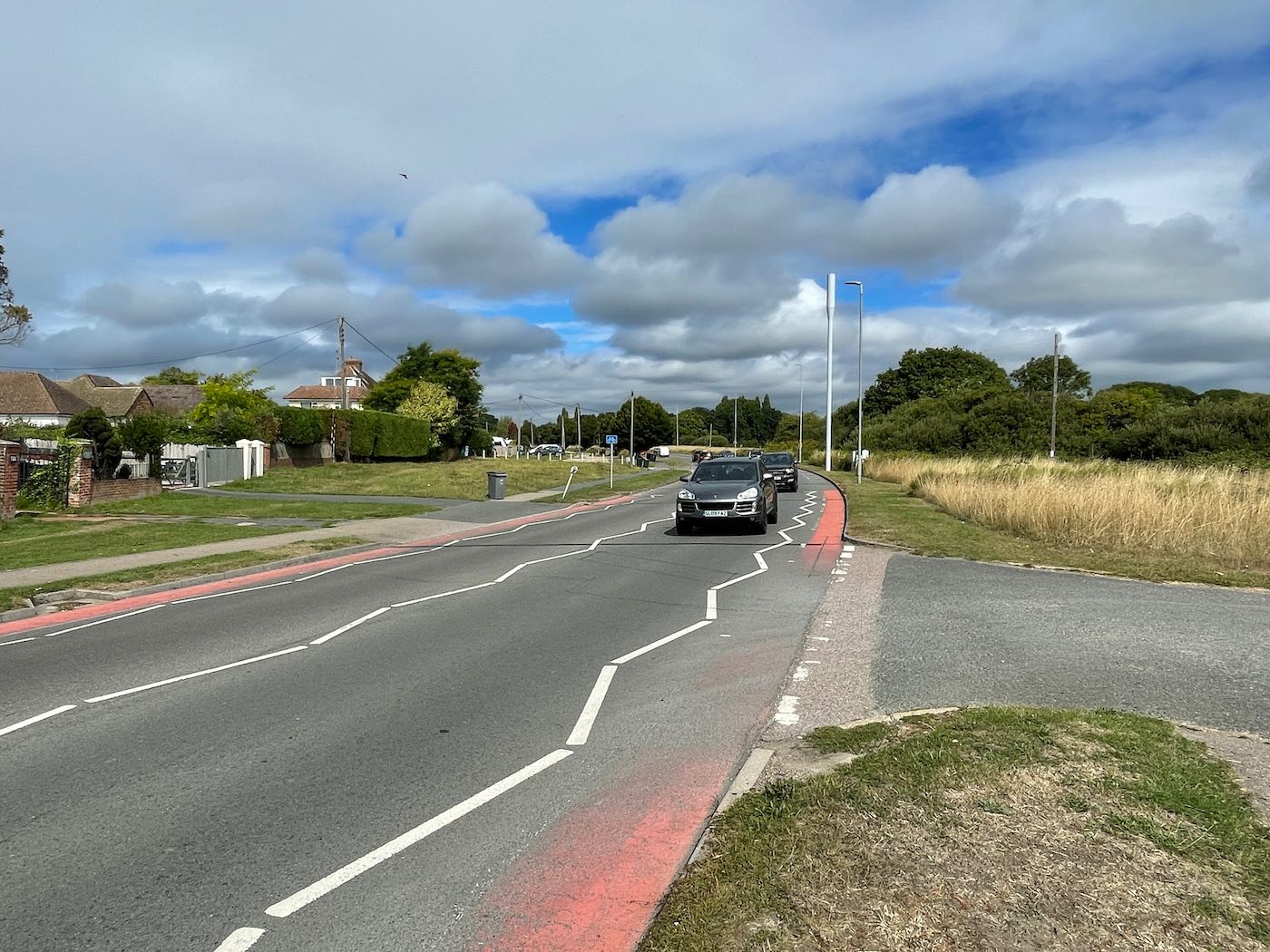
Even on a weekday morning in mid-August, the flow of traffic is constant.
An appeal was rejected in December 2019 by planning inspector Louise Phillips, who concluded overall “...the basic risk to highway safety constitutes an adverse impact of the proposed development which would significantly and demonstrably outweigh its benefits...”
Wealden Borough Council again refused the application in 2021 on the grounds of highways and transport issues along with criticism about location and effects on drainage.
Another appeal hearing starts next Tuesday, 6 September. However, on August 11 the council announced it would no longer object to the application.
After a meeting behind closed doors, council leader Ann Newton said it was “with a very heavy heart” that they had had to withdraw.
“We have taken advice from the very best legal experts who have told us they cannot defend the indefensible,” she said.
“On highways, it has been made clear to us this argument is now baseless and again there is no evidence to support this. On the other reasons, legal advice is clear, that to pursue these would not be justified”, said Coun Newton.
“We have come to the end of the corporate democratic road as a district council but the option is still there for local members to appear at the appeals and make representations.”
She added that members had to protect public money and to continue to defend these appeals would not be in the best interest and would go against all the advice they had been given.
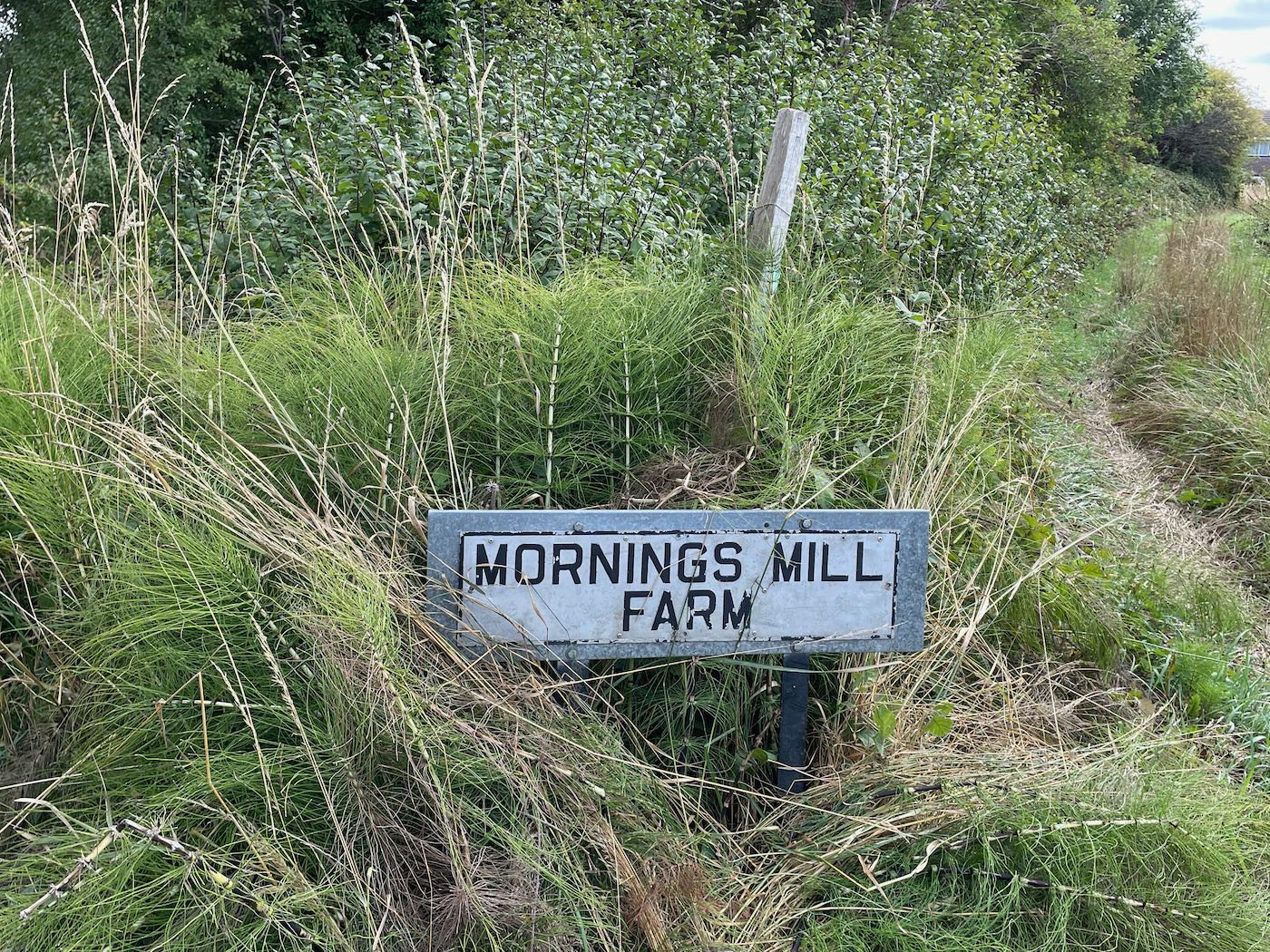
The parish council has said it continues to object for the previous reasons relating to traffic, location and drainage.
Wealden’s five-year strategy for housing land supply states that 1,221 homes need to be built annually, a total of 6,105 over five years.
The owners of Mornings Mill Farm are Peter and Robert Vine; the farm has been in their family for many generations.
A highways report for the Vine family, dated 5 August 2022, argues the objections relating to traffic are unfounded and “there are no highways and transportation grounds to prevent the granting of this appeal”.
It states that “the site is well positioned relative to local facilities and to allow access by non-car modes of transport linking the site locally and regionally”.
The report lists measures that will improve transport including a £425,000 contribution to bus services and a car club comprising five vehicles on the site.
There is also £1.4 million earmarked for improvements in Polegate High Street. This depends on the council showing that the scheme meets the rules of the Community Infrastructure Levy, which is a charge on new developments.
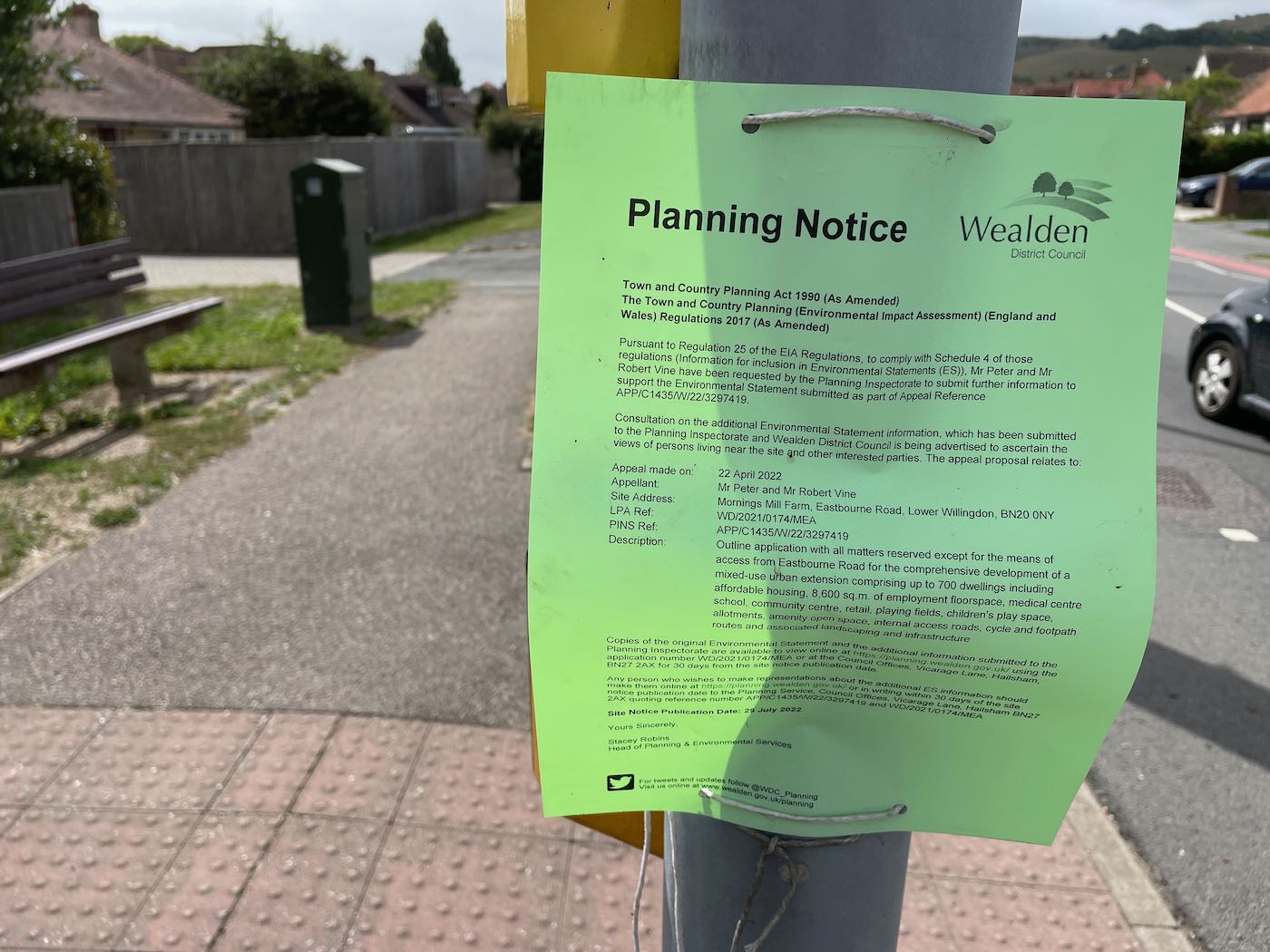
The report for the Vine family also says that the Lottbridge roundabout is within 5km on the National Cycle Network and cycling could be used for commuter trips, shopping and getting to leisure facilities.
The appeal, to be heard by planning inspector Michael Boniface, starts on 6 September at the Hellingly Community Hub. Residents and councillors can speak as ‘Interested Parties’ so they will not be open to claims of substantial costs against them.
After a walk along the public footpaths across the farm, John pauses by nearby Willingdon Triangle and reflects.
“There are so many reasons it should not go ahead but it’s all down to one man [the inspector],” he says.
“I would hate to see it built on. I would like to see a park for Willingdon where everybody could go.”
:: This article is not a PR handout. It is based on research and interviews. The Eastbourne Reporter is free to read but not free to produce. Support me for the price of a coffee just once a month here or with a one-off donation here if you believe genuine, questioning journalism is vital for this town.



